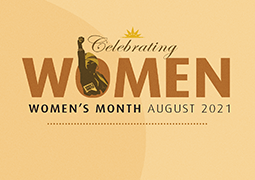
Provincial representatives of the Progressive Women’s Movement of South Africa (PWMSA) celebrated the launch of the Women’s Charter for Accelerated Development and hope it will boost women’s economic emancipation and end gender-based-violence (GBV). Women are optimistic that the charter, which sets a 25-year “Vision an Agenda to Advance Women’s Equality, Growth and Development” will be an important tool in the fight for gender equality in all levels of society.
Representing the Eastern Cape chapter of the PWMSA during Parliament’s launch of the charter, Ms Ntombovuyo Nkopane said they hoped it will bring change, especially to women in rural areas. She called for the charter to advocate for a review of laws disfavouring women, such granting parole to people found guilty of GBV. She also called for hunger and poverty to be eradicated, as “most of the atrocities are because most women depend on men, who become monsters”.
She added: “We need to push the gender agenda and gender responsive budgeting in all spheres of government and consider empowerment programmes for young girls and boys to prepare them for adulthood.”
Ms Flora Maboa-Boltman from the Mpumalanga chapter of the PWMSA also declared her province’s support for the charter. “We have come a long way as women in South Africa and the world, however, a lot still needs to be done to address issues of inequality. Women are still engulfed in poverty, subjected to violence and unpaid domestic work. As women, we need access to finance for business, access to justice, skills empowerment. We must influence legislation and implementation of policies on the empowerment of women.”
Gauteng representative Ms M Lebone said GBV is getting worse, despite laws and policies aimed at combatting it. “GBV is worsening on a daily basis, it is important to consider the ratification of Convention 190, so that we promote a safe workplace for both males and females.
“For decades, patriarchy, colonialism, racism and even apartheid, subordinated and oppressed women within political, economic and social life. For too long women have been marginalised, ignored and exploited, and remain the poorest and most disadvantaged of South Africans. The struggle continues, may we end GBV today,” Ms Lebone said.
Northern Cape representative Ms Meriam Phaliso believes that the launch of the Women’s Charter on Accelerated Development is a reminder that gender equality is central to eradicating poverty and enhancing prosperity. “The charter it is a foundation for economic and social progress. It is also central to empowering both women and men, enhancing prosperity and breaking the silence of deprivation.”
She also submitted that addressing the gender pay gap is one of the pre-conditions for ending the vestiges of colonialism, apartheid and patriarchy. “Accelerated development must lie at the heart of all state and civil society activism, and should find daily practical expression in the programme of this institution.”
The charter also received support from the province of KwaZulu-Natal, with representative Ms Barbara Thompson saying budgetary constraints should not hinder its implementation. Inequality has always existed in all spheres of women’s lives. Women demand equality at all levels – household, workplace, as well as state institutions, she added.
The Free State’s Ms Malefu Lebesa spoke about the importance of gender mainstreaming and aligning government planning and policies to the charter to advance gender equality. It everybody’s responsibility to unite to ensure that there is maximum effort in eradicating hunger and gender imbalances, she said.
“Gender mainstreaming must be an integral part of the process to interrogate plans and budgets to advance gender equality, to ensure government planning and budgets advance gender equality. Government officials shall account on how their policies, programmes and budgets advance gender equality,” said Ms Lebesa.
The Limpopo chapter of the PWMSA was represented by Ms Maria Mamedzi, who said her province supports all the charter’s programmes. “We accept the charter with all its recommendations. We are also happy to see progress in women representation in all spheres of government and other public institutions, and believe with the charter we are going to realise real gender equality,” said Ms Mamedzi.
The Western Cape was represented by Ms Lumka Tambori, who called for all women to be included in the economy and called for change to the status quo. “In South Africa, women constitute the majority of the population, yet their participation in the economy has been overshadowed. Our country has the most progressive laws and policies intended to advance women’s rights and promote equality in all spheres, but over the years we have experienced women being excluded in one of the most fundamentals of life, which is the economy. Economic advancement has been scarce on the side of women,” she said.
Delivering a message of support from the North West province on the launch of the charter, Ms Pitsa Likopane said: “The nearly universal adoption of the charter as a guiding principle is due to its flexibility. It has allowed various stakeholders to adopt articles of the charter relevant to their own purpose.”
She said charter has transitioned from being a contested ideal, to a concept that enjoys widespread endorsement by international institutions, government, business, civil society and tribal authorities. “Through it we have make progress. However, it is also a liability, because its various interpretations have led to confusion and compromised implementation,” said Ms Likopane.
She also raised the absence of gender-responsive budgeting as a major challenge, as well as the absence of monitoring tools for women’s policies and programmes. “As North West, we recommend the development of mechanisms to assess the effectiveness of the gender responsive policies, avail gender responsive budgeting, and that the sex offenders register be open to the public.”
Sakhile Mokoena
23 August

